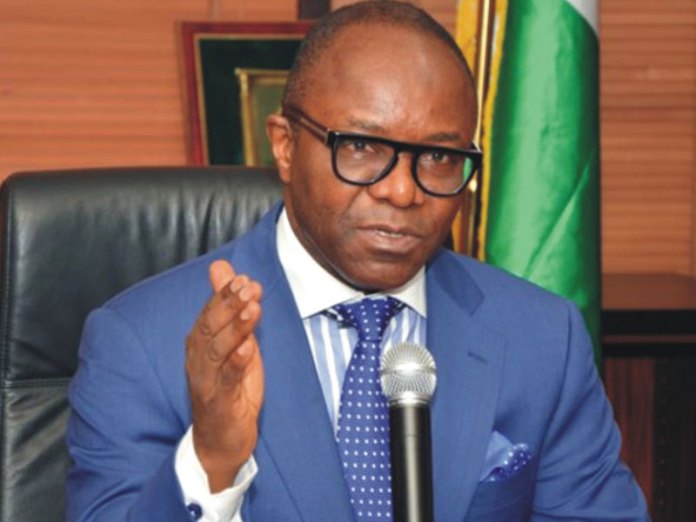
The Federal Government has said that it would attract $15 billion fresh investments in the oil and gas sector by halting contributions to Joint Venture Cash Calls to oil exploration in the country.
Minister of State for petroleum resources, Dr. Ibe Kachikwu, made this known yesterday while briefing State House Correspondents after the monthly National Economic Council (NEC) meeting chaired by Vice President, Yemi Osinbajo.
According to him, current cash call areas in the oil sector over the last five years up until December 2015 was about $6.8 billion unpaid.
As at 2016, Kachikwu said government had accumulated unpaid cash call arrears of over $2.5billion dollars .
He explained that the debt became accumulated due to failure to pay the joint cash calls when oil was selling for $110 -$120 per barrel.
He said: “There really wasn’t any justification why these monies shouldn’t had been paid in terms of the five years arrears.”
He explained that at present, it had become difficult to pay the debts as a result of militancy and the drop in oil prices from $110 to $40.
The implication of this, he said, was government’s inability to meet its cash call obligations.
He said that sometimes this year, government took on an initiative working with NNPC and the Ministry of Petroleum to try and find a sustainable solution for funding JV cash call.
He said “We have been able to find that solution. What we have been able to put together has enabled us to shave over $1.7 billion savings for the government on the $6.8 billion that was previously owed. So we are going to be owing only $5.1 billion as oppose to $6.8 billion dollars.”
According to him, the $5.1billion will be paid within five years interest free and the barrels to pay will come from incremental barrels generated by the oil companies not on the current 2.2 million barrels.
He explained that if for any reason government did not meet those thresholds, it would not be able to pay the $5.1 and the $2.6billion outstanding for this year.
He said: “We are trying to cover that through three thresholds: one is to continue to do an accelerated cash call payments between October and December.
Hopefully that will bring the figure down to about $1.5 billion and that $1.5 billion was sinking resources from FG either through some of our reserve or Nigeria LNG or a combination of that and alternative funding to try and train staff that should be completed hopefully by December.
“Beginning next year, if this goes into place the issue of cash call era would have had disappeared . The effect of what this is that investments in excess close to $15billion are likely to be announced by the oil companies bringing back most of the projects within couple of weeks once this is signed.
“For the first time the oil industry will take responsibility for arranging their own funding and being able to produce oil and save the government the whole nightmare of cash calls every year.
“So this is a very dramatic move in the oil industry we are still going to make presentation to the National Assembly for them to understand this.”
He said the new financing regime would help to save at least $1billion from 2017.
He said government would be looking at reducing the cost of barrel per production from the current 27 dollars per barrel which he said was one of the highest in the world to figure within the threshold of 18 dollars per barrel over the next two years ultimately to about 15 over the next four years.
He also said that he expected the barrel reserve production to increase to about 2.5million by 2019 and potentially to about 3million barrels by 2021.










